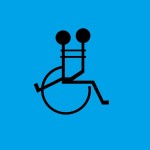Have you ever wondered why women are perceived as excellent caregivers? We’re led to believe that our universal healthcare system adequately compensates them, but in reality a majority of the care women provide is unpaid, and in extreme situations they have given up careers to care for ailing spouses or loved ones.
For patients with debilitating conditions, paid health-care workers are often providing relief to family, who in turn have stepped into the more active role of primary care.
Hospital amalgamation, deinstitutionalization, and community treatment have been the popular trend in the past decade, and it has come at the cost of well-paid work and job security.

Membership in unions has steadily declined as third-party service providers who successfully bid on contracts stretch those resources thinly to cover a larger territory.
When it comes down to gender roles, it’s women as opposed to men who are mostly responsible for the business of home care.
In the context of globalization, we exploit other countries of their talent by bringing in foreign workers to provide health care within our beleaguered, broken system.
Foreign-trained doctors and nurses fortunate enough to find entry-level positions within the industry are rewarded with pay disproportionate to their level of expertise, while we, as a result, benefit from the higher quality of care.
On January 29, Amnesty International will be hosting a documentary series called Women, War and Peace from 7 to 9 pm in Young 227 at the Lansdowne campus. All are welcome to attend.
Let’s celebrate, not admonish, women and the work they do as peacekeepers in providing stability around the world.
